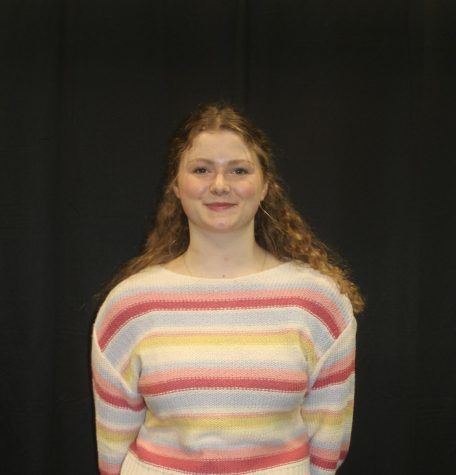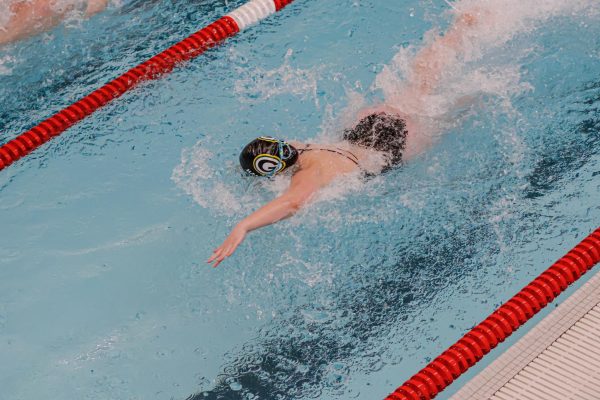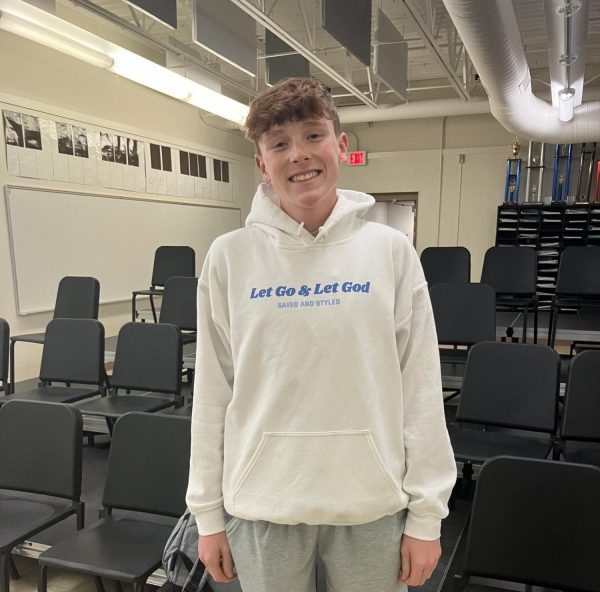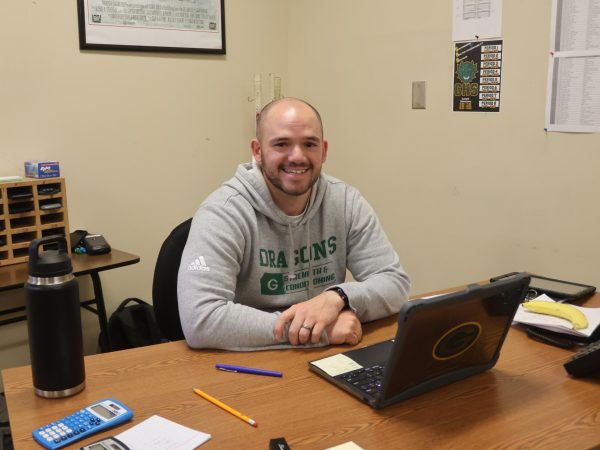Learning English And Adapting To A New Life
Inside Ms. Conner’s Class for Non-Native Speakers
Unbeknownst to many, Ms. Molly Conner, a Spanish teacher at GHS, teaches three classes of English to non-English speakers. These classes consist of students who have moved to Gretna from other countries like Cuba and Afghanistan. During the first three periods of the day, small groups of ten or fewer have been putting in hard work and challenging themselves to learn the English language.
“Every day is a little bit different,” Ms. Conner said. “My first-hour class speaks a lower level of English, so we might be reading a story, or working on some grammar, but second-hour is a mix of newer kids that have a low level of English and kids who have been here for quite a while. That makes it different every day.”
Differentiation is a major aspect of the class. There are many things to learn and cover for the year, so Ms. Conner tries to incorporate history and pop culture to create engaging lessons for her students while also covering important skills.
“Right now we are studying Ceaser Chavez,” Ms. Conner said. “I try to pick out different things that they maybe have not heard of before. We work a lot on their reading skills and conversation skills.”
The material requires the class to cover a lot of information. With an extensive curriculum, the students find some aspects difficult. Most of the students thought grammar was the most challenging part of the class, but others thought it was how they comprehend the language.
“I am used to speaking Spanish, so I think in Spanish,” sophomore Caleb Perez-Ojeda said.
Perez-Ojeda was born in Cuba and, like many of the students, he has to adjust to actively using the English language, which is an undoubtedly hard feat. Despite all of the challenges of adjusting to speaking and learning a new language, that has not been the biggest change for some.
“We have a lot of students who have come from countries with a lot of violence or safety issues,” Mrs. Conner said. “They have not necessarily gone to school for as many years as the kids here have.”
Adjusting to a new way of life could be very difficult, and some of these students are unfamiliar with traditional school, making regular classes more challenging. Many aspects of regular classes have proven to be difficult.
“They come here and it is their first school experience,” Ms. Conner said. “That is a challenge because we have to try to help them take classes like science and math when they have not done that before.”
These students are coming to GHS from all different walks of life, and they are adjusting to being a GHS student and simply a student in the U.S. They have various cultures and experiences in their lives and Ms. Conner’s class is a place to celebrate that. She has worked to improve her students’ conversation skills while highlighting their cultural differences.
“The most interesting thing in class is when we can just have conversations about their culture, and compare their cultures with our cultures,” Ms. Conner said.
Aside from blending American culture with the students, the class seemed to have been fun and extremely helpful to the students in it. Some students believe that simply learning the language is the best part.
“The most fun part is talking English,” sophomore Mohammad Popal said.
Finding joy in learning is a great achievement. With Ms. Conner’s help, her students have found that.
“I like to be in class,” Perez-Odjeda said. “I like to study.”
Other than enjoying the actual class, the students are applying what they learn in class to their everyday life. Improving their English has been a relief for many of the students.
“I can communicate with most of the people,” Perez-Odjeda said.
English is undoubtedly needed to attend an American high school. At its core, this class is a necessity in these students’ lives.
“All of them really want to learn English because they need it to be able to survive,” Ms. Conner said.
In all, this class has changed these students’ lives. From attending traditional school for the first time, to being able to have a conversation, this class does more than just teach words and grammar. It has taught its students’ ways of life to help them adapt to their new environment.

Madie Petrick is a freshman at GHS and this is her first year with Gretna Media. She is interested in journalism because she loves to write and has always...







